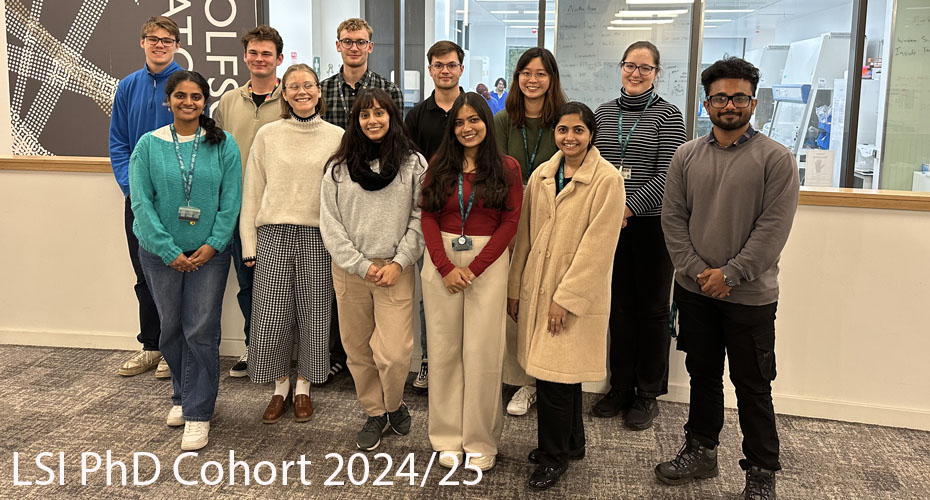LSI PhD Programme in Complex Living Systems
Modern scientific innovation involves the integration of diverse disciplines and the bridging of pure and application-oriented research. At the LSI we are training a new generation of scientists who are equipped to think and experiment beyond traditional boundaries using cutting-edge technologies and approaches.
You can apply to our PhD Programme via three routes: (i) direct application for an LSI-funded PhD studentship (covers fees, stipend, and training budget); (ii) application for a studentship funded by another source (e.g., UKRI, China Scholarship Council, national agencies) with an LSI supervisor; (iii) self-funding with an LSI supervisor.
All students are enrolled in the integrated LSI programme regardless of primary discipline or funding source. You will benefit from the broad range of opportunities and activities offered by the programme, including:
- Leading-edge research technologies and approaches, from quantum biology to brain function
- State-of-the-art laboratories and facilities in the recently built LSI
- Opportunity to formulate and modify your own project
- Cohort learning in interdisciplinary training modules and workshops
- Supervisors from different disciplines
- Advisory thesis committee to support you throughout the PhD
- Diverse and inclusive community of over 60 PhD students
- Peer-to-peer PhD student presentation and discussion sessions
- Future career preparation
Exeter is one of the fastest growing cities in the UK. It is situated in the South West of England which offers unmatched sports and leisure opportunities through several national parks and some of the best beaches in Europe.
We aim to recruit the best and most imaginative students from across the range of disciplines represented in LSI – Physics, Mathematics, Computational Science, Engineering, Biology and Medicine.
You will be motivated by scientific curiosity and be able and willing to “think outside of the box”. You should have a first or upper-second-class degree (or equivalent). Masters training can be an advantage but is not essential. However, you should have sufficient experience to demonstrate your capability for research work and aptitude for critical thinking.
Hear from our students
Self-funded applications
For self-funded applicants, please contact your preferred supervisor and additionally the LSI Director of Postgraduate Research, Professor Steve West (s.west@exeter.ac.uk.)In your message, please state your motivation for carrying out PhD research, why you are applying to our interdisciplinary programme, why you have chosen your selected supervisor/project, and your source of funding for fees, living costs and research training. Self-funded applicants will be subject to an equivalent selection process as applicants for funded positions.
If you have any inquiries, please contact the Director of Postgraduate Research (LSI), Steven West: s.west@exeter.ac.uk











